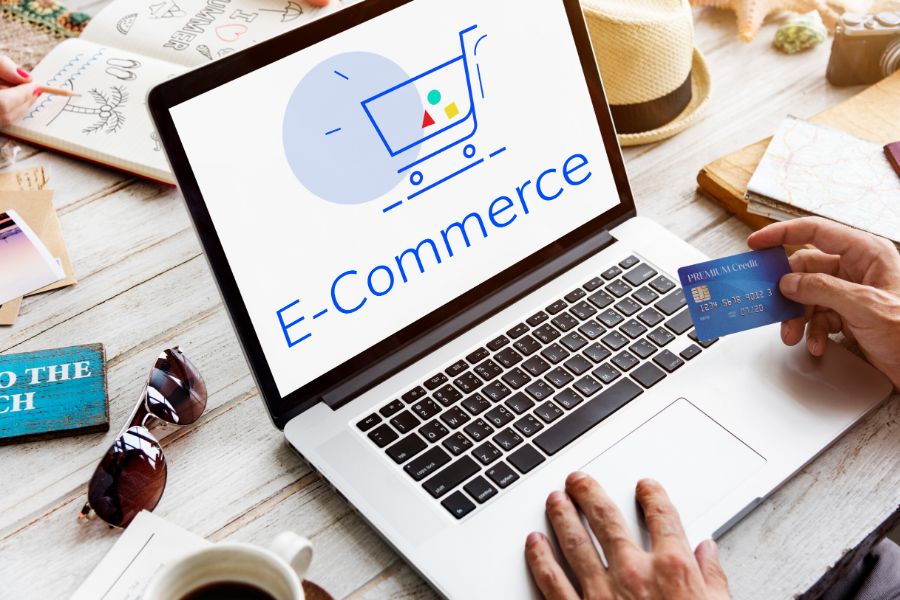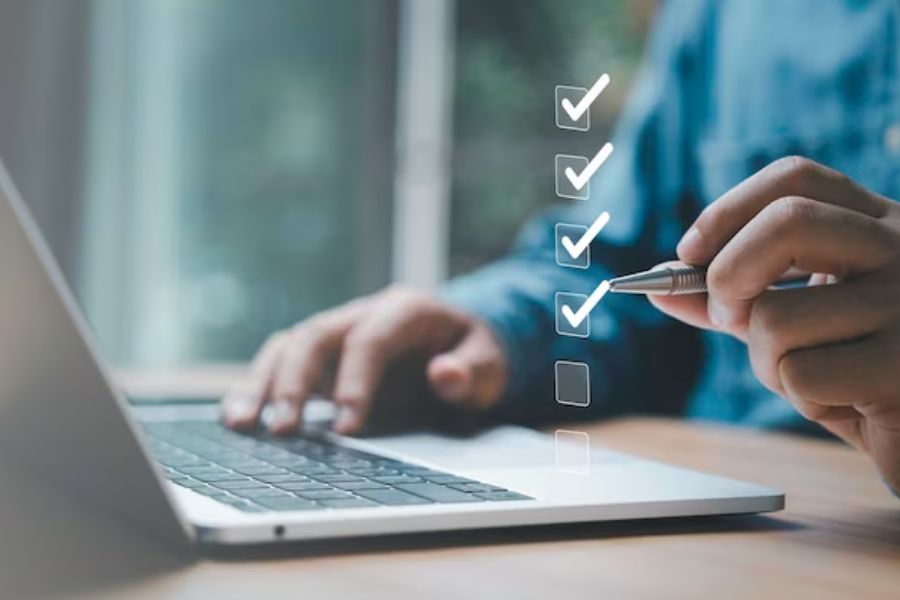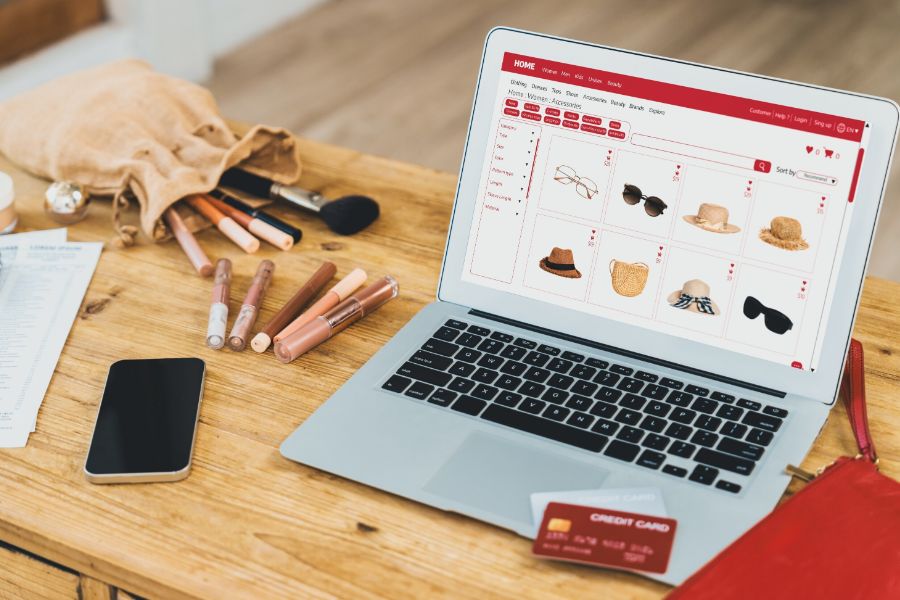Omnichannel commerce. This phrase has most likely been heard and read many times in today’s digital world. If you are a retailer, omnichannel can even become more familiar. There is no doubt that the most successful businesses nowadays are using both online and offline platforms to sell their products/services.
However, because the term is so widely used, it might be difficult to understand what it exactly means. Therefore, in this blog post, we’ll address the question, “What is omnichannel commerce?”, as well as its benefits and the steps needed to create an omnichannel shopping journey for customers.
What is omnichannel commerce?
Omnichannel commerce is a multichannel sales strategy that offers a consistent customer experience whether the customer is purchasing online, on a laptop, or in a physical store. In fact, 73% of consumers utilize various channels during their purchasing experience, according to a recent study. We can clearly see that omnichannel commerce is becoming popular nowadays.
In essence, omnichannel operations are focused on the complete customer experience, rather than the customer’s individual interactions with various channels. Therefore, omnichannel commerce should be distinguished from multichannel sales strategies. The main difference lies in the continuity between multiple shopping channels.
On the one hand, omnichannel commerce connects the shopping experience across platforms (either online or offline), so that customers can start on one platform and complete the purchase on the other. On the other hand, the multichannel approach only addresses the different channels but not the connection between them.
Some of the most outstanding companies using omnichannel commerce nowadays are Target and Walmart. These 2 retail giants have been constantly improving their omnichannel model by using a mix of online websites and curbside pickups. Interestingly, customers can even stay in their car while having their order picked up by retail staff.
Benefits of omnichannel commerce
Now that you know the basics of omnichannel commerce, it’s time to explore the advantages that it can bring to both retailers and consumers.
Offer a more convenient shopping experience
Consumers nowadays demand an omnichannel experience with seamless service across communication channels. As the number of touchpoints grows, so does the expectation for seamless integration from one platform to the next.
Whether it’s a social advertisement, an email newsletter, a smartphone push message, a conversation with your chatbot, or a face-to-face discussion with your store’s personnel, there’s something for everyone. In the omnichannel shopping experience, the customer can interact more closely with retailers in a way that seems natural to them. In this way, barriers between channels in a business are broken down.
Boost sales and traffic
It’s not easy to make your sales approach omnichannel-proof. It will, however, be well worth your time and money. Here is one of the reasons. Omnichannel customers spend more money than single-channel customers, according to a study of 46,000 buyers.
But why do omnichannel customers spend more money in the store with each new platform they use? There are various factors, but the primary reason could be the fact that they can now browse for products anywhere, anytime, and choose the delivery option that is best for them.
In order for this to happen and boost sales effectively, many businesses nowadays are using point of sale (POS) systems, with ConnectPOS being a good example. This software serves as a unified platform for retailers to keep track of their inventory in real time and effectively control customers’ omnichannel activities (such as click-and-collect). They offer a 14-day free trial if you want to experience their features.
Increase customer loyalty
Omnichannel clients not only spend more, but they are also more loyal to your business. In fact, research has shown that clients who had an omnichannel purchasing experience made 23% more returns to the retailer’s shops within six months.
Moreover, retailers who can monitor their consumers across many channels may provide a more personalized experience to their customers. Businesses can use the omnichannel data to gather insights on generating content and offers that will drive people to purchase more – not just online, but also in physical stores. As a result, if you focus on consumer loyalty and have a compelling brand narrative, you don’t have to use as many discount coupons, mid-sale promotions, and other traditional marketing techniques. Customer loyalty will be more likely to increase naturally.
How to start an omnichannel commerce store?
Here we will provide a step-by-step guide:
Understand your customers
Before having any plan, make sure that you understand your target customers thoroughly as much as possible. Learn as much as you can about your customer based on your sales data and make no assumptions. You can also create surveys or ask them directly after purchasing to evaluate their interests, behaviors, and requirements. Be open to feedback from customers, and make use of social media to connect with consumers on a more personal level.
Choose the right channels and define their purposes
Many store owners often overlook this step. It is important to find out where and what your consumers are shopping for, and why they use particular channels to shop. For example, physical stores can sound straightforward, but it is not always the case for online platforms. In the digital world, there are many different channels which can greatly differ from one another. The browsing experience of Facebook, for instance, can be much more mobile-friendly than a website for PC. Make sure to choose the right channel to fit the shopping behaviors of your target consumers.
Connect different channels
This is the difficult part, and it only works if you do it properly. Connecting different channels means mapping out your customers’ shopping journey. To track your consumer across all touchpoints, you’ll need to have the most general look: from reading reviews on your website to seeing social advertisements, window browsing on an online marketplace, and eventually purchasing at your physical store.
Improve your channels
Even when you have received success on omnichannel shopping, there’s no time to rest on your accomplishments – keep testing and refining your plan. To provide the best service to your consumers, carefully document these touchpoints, get feedback and consult sales data. You’ll build a higher level of loyalty among customers who keep coming back for more if your service is constantly improving. They see the potential and may even refer to a friend or family to start shopping at your place.
Wrapping up
Now that you know the ins and outs of omnichannel commerce, is your company ready to embrace this sales technique? Being a leading omnichannel point of sale provider, ConnectPOS can be a good partner with retailers in building the most enjoyable shopping experience for customers. Don’t hesitate to contact us if you have any questions or want to know more about our omnichannel mission!



